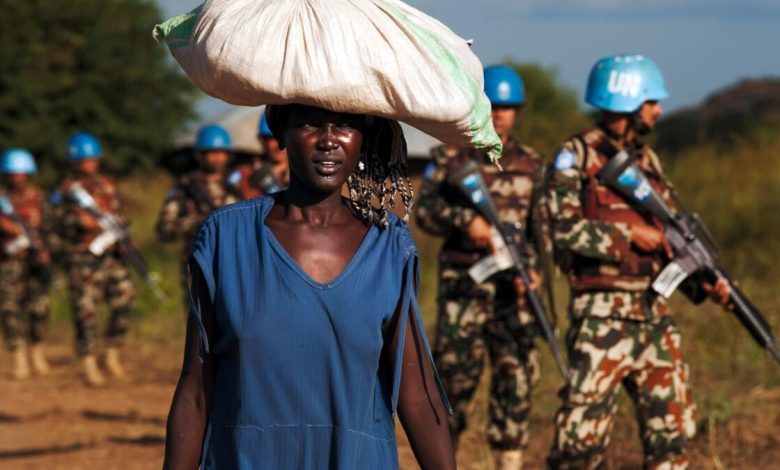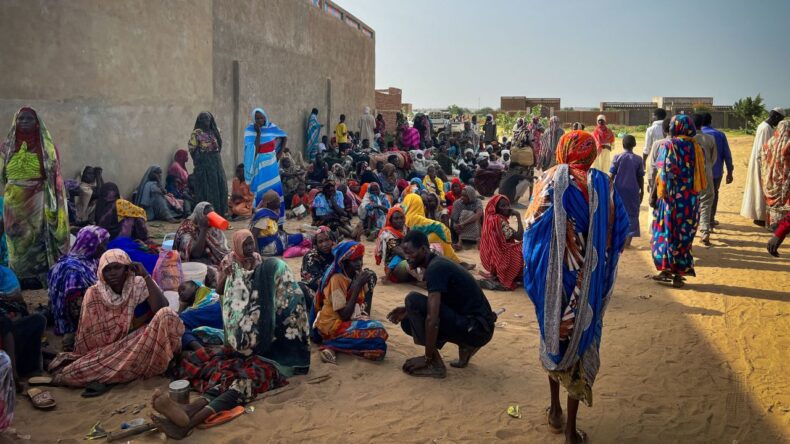The United Nations has issued a grim warning, stating that Sudan is likely to witness a mass exodus of over 1 million refugees by October as the country continues to grapple with escalating violence. The 10-week conflict, which erupted in mid-April between the military and paramilitary forces, has resulted in thousands of deaths and displaced approximately 2.5 million people. The capital, Khartoum, and the western Darfur region have borne the brunt of the violence, with reports of targeted attacks on non-Arab tribes. Despite intermittent cease-fires, peace negotiations have faltered, leaving Sudan on the brink of a humanitarian catastrophe.
Sudan’s Descent into Chaos
Since mid-April, Sudan has descended into chaos due to the violent clashes between the military, led by Gen. Abdel-Fattah Burhan, and the paramilitary Rapid Support Forces (RSF), commanded by Gen. Mohammed Hamdan Dagalo. The ongoing conflict has claimed the lives of over 3,000 people, according to the country’s Health Ministry, and displaced an estimated 2.5 million individuals, as reported by the United Nations. The capital, Khartoum, and the Darfur region have been the epicenters of the violence, with non-Arab tribes bearing the brunt of the attacks.
Targeting Non-Arab Tribes in Darfur
In Darfur, the RSF and Arab militias have been accused of specifically targeting non-Arab tribes, resulting in widespread displacement and loss of life. Local rights groups and the United Nations have expressed grave concerns about the targeted violence against these communities. The situation in Darfur has been described as a potential genocide, with the Dar Masalit sultanate reporting over 5,000 deaths in the capital city of Genena alone in the past two months.

Escaping to Neighboring Countries
The mass displacement caused by the violence has led to a significant influx of Sudanese refugees into neighboring countries. Over 560,000 individuals have sought refuge in neighboring nations, with Egypt being the primary destination. The United Nations High Commission for Refugees has revised its figures, estimating that the number of refugees fleeing to Chad alone may reach 245,000 by October. Given the ongoing trends, many Sudanese are expected to seek refuge in Egypt, exacerbating the regional crisis.
Fragile Cease-fires and Failed Negotiations
Despite numerous cease-fires declared since the conflict’s outbreak, none have proven sustainable. Both Gen. Abdel-Fattah Burhan and Gen. Mohammed Hamdan Dagalo separately announced temporary truces, but the violence has persisted. Peace negotiations mediated by the United States and Saudi Arabia have also failed to yield positive outcomes. The mediators have openly criticized the RSF and the army for violating truces, undermining efforts to establish lasting peace.
Islamist Fighters Join Sudan’s Army, Complicating Conflict Resolution Efforts
Thousands of men with ties to former President Omar al-Bashir’s Islamist movement and who worked as intelligence operatives are reportedly fighting alongside the army in Sudan’s ongoing conflict, according to military and intelligence sources. This complicates efforts to end the violence, which has displaced 2.5 million people, caused a humanitarian crisis, and risks destabilizing the region. The presence of Islamist fighters could impact how regional powers engage with the army, hinder the transition to civilian rule, and potentially lead to more internal conflict and international isolation for Sudan.
Worsening Humanitarian Crisis
The violent conflict has unleashed a humanitarian crisis of alarming proportions. Residential areas and hospitals in Khartoum have been heavily targeted by airstrikes, while RSF troops have seized civilian homes across the capital for use as military bases. Sexual violence, including the rape of women and girls, has been reported in Khartoum and Darfur, with the RSF being implicated in most cases. The RSF has announced the establishment of an internal body to address violations and misconduct, but concerns remain regarding their commitment to accountability.
Sudan stands on the precipice of a humanitarian catastrophe as violence continues to ravage the country. The United Nations’ warning of over 1 million refugees fleeing Sudan by October underscores the urgent need for decisive action to end the conflict and protect the lives of innocent civilians. The international community must prioritize Sudan on its agenda and exert diplomatic pressure to facilitate a peaceful resolution. Failure to address the crisis not only risks the lives of millions but also threatens to destabilize the entire Horn of Africa region.













